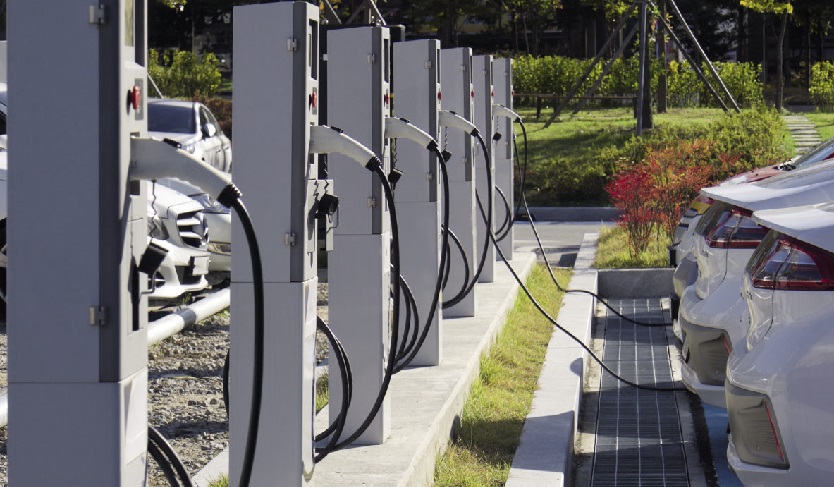Germany’s national goal is to reach one million installed charging points by 2030.
To drive this deployment, the Federal Ministry of Transport (BMDV) had announced, among other measures, an allocation of 400 million euros to deploy commercial fast chargers.
However, this funding recently fell victim to the wave of grants that the government decided to cut due to the national budget crisis, approving 12.3 out of the promised 400 million euros.

Currently, the country has 114,565 stations, which, according to Kerstin Meyer, Senior Associate Green Vehicles at Agora Verkehrswende,” is okay for now, but looking ahead, we need to accelerate significantly.”
“We have enough charging points for the number of electric vehicles (EVs) in Germany,” says Meyer to Mobility Portal Europe.
And she continues: “But if we want to be serious about achieving climate goals in Germany, we need to be much faster in implementing the stations.”
Specifically, the German Association of the Automotive Industry (VDA) had pointed out that to reach the goal of one million points by 2030, “the expansion rate of recent months would have to triple.”
This slow growth is not due to a lack of ambition on the part of manufacturers, operators, and suppliers, but rather to problems related to necessary permits and connections to the power grid.
“All these are issues that we hear from professionals in the field now, where procedures take a long time,” highlights Kerstin Meyer.
The growth of charging points is closely linked to the increase in electric vehicles, a point that is currently critical in the country.
The federal government’s goal is to reach 15 million EVs by 2030.
However, the decline in registrations in recent months raises doubts about whether this goal remains realistic and achievable.
“If we continue to sell or register EVs at the current rate, it would be very difficult to meet this goal,” Meyer states.
New EV registrations in April recorded a 0.2 per cent decline compared to 2023, to 29,668 units, despite the three additional working days this year.
According to the Association of International Motor Vehicle Manufacturers (VDIK), if the number of working days were the same as in April 2023, there would be a steep drop of 14.5 per cent.
The proportion of these in the total registrations of new cars was only 12.2 per cent last month, accumulating a total of 111,005 purely battery-electric units in the first four months of the year.
This is a 10.8 per cent decrease compared to the same period last year.
To boost the adoption of zero-emission cars in the country, Meyer asserts that “more policy measures are needed from the government to enable consumers to buy cars more quickly and achieve this goal.”
In this regard, Agora Verkehrswende does not advocate for purchase incentives to be granted as a subsidy, but rather they support for a tax system reform.
“This way, purchase incentives could be refinanced, increasing taxation for heavier and more polluting cars,” she explains.
And she adds: “If a system like this were introduced, we believe it would make sense to continue providing purchase incentives for EVs.”
Similarly, Meyer argues that some changes in the number of registrations from one quarter to another “are normal, there is a strong seasonality in the numbers.”
This is because, generally, sales are lower at the beginning of the year and tend to increase towards the end of it.
However, she also attributes responsibility to the progressive reduction of incentives for the purchase of EVs throughout 2023, which culminated in the elimination of the environmental bonus last December, as well as to vehicle prices, “which could be contributing to that situation.”
“Studies repeatedly show that there is a lack of cheaper electric car models. If mass adoption in the market is really the goal, then we would need more affordable options,” she emphasizes.
In conclusion, how is the eMobility transition progressing in Germany?
“This is very important and plays a significant role when it comes to achieving climate goals in transport, but right now we are stuck, it’s not moving fast enough,” concludes Kerstin Meyer.
About Agora Verkehrswende
It is a think tank based in Berlin that works on developing policy strategies for decarbonizing transportation.
Specifically, “Verkehrswende” means “transportation transformation” in German.
The independent, non-profit organization conducts studies to show how greenhouse gas emissions in the transport sector can be reduced to zero, focusing primarily on Germany.
They then discuss these recommendations with political, business, academic, and civil society actors.








